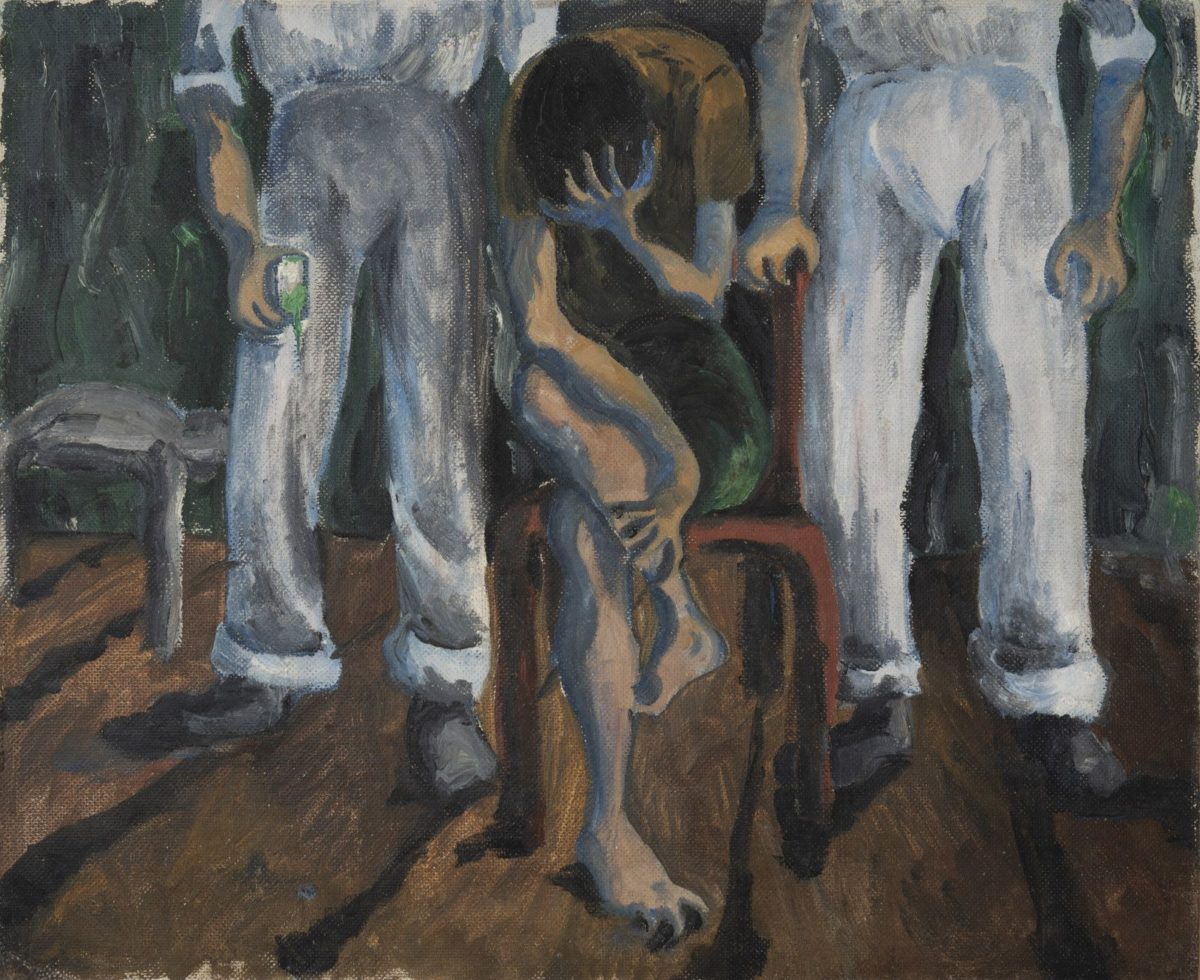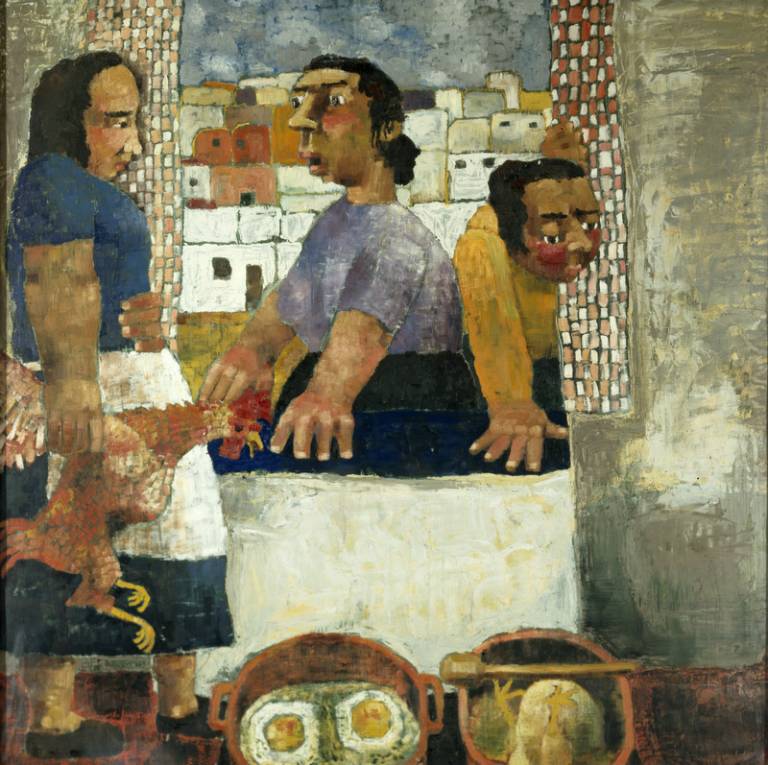Film
A film that recently caught my attention was Minamata a new release by director Andrew Levitas, starring Johnny Depp and Akiko Iwase. The film is set in the late 1960s/early 70s New York and Japan (with Serbia cleverly being used as a substitute for the Pacific nation) Depp plays the famous Life magazine photojournalist Eugene Smith. By the late 60s, Smith, who had taken a number of iconic photographs while covering US forces in the Pacific theatre during the Second World War, is haunted by the scenes he has witnessed and is now addicted to alcohol and drugs. Living a scant existence in New York, Smith is approached by Masako Matsumura (wonderfully played by Iwase) and asked to come to Japan to help expose the company that protestors believe has been dumping heavy metals into a local water supply.
The residents of the fishing village and industrial town of Minamata, who have been exposed to the industrial waste through contaminated food and water suffered horrifically. The neurological condition, to which the name Minamata Disease was given caused life-changing impairments, and in extreme cases death, which occurred within weeks of the initial onset of symptoms. Chisso Corporation which ran the factory denied that they were responsible and with many locals employed by the corporation it had a hold over the local community. It took a group of dedicated protestors, many suffering from Minamata disease, or who had family members with the condition who needed constant attention (meaning the carers couldn’t work) to fight for compensation from the Chisso Corporation.
Depp is almost unrecognisable as an aged Smith, who is persuaded to pick up his cameras once again and tell a story through the power of photography. Director Levitas cleverly cuts to Smith’s original photographs as Depp snaps the images. While this is very much a story of industrial malfeasance by the Chisso Corporation it is also about the changes to the mediascape as newsweeklies like Life magazine was fighting for their place in a world dominated by television news. While the film offers a familiar narrative, reminding this viewer of Dark Waters, the performance by the leading actors and the important subject matter make Minamata a worthy Saturday night movie.
Minamata is now streaming on a number of platforms and can be found in selected theatres.
Podcasts
Tech Won’t Save Us is a weekly podcast hosted by Paris Marx and should be a regular listen if you want to understand the technology sector. Each week Marx and a studio guest critically examine the world of tech through a progressive lens. Marx is an engaging interviewer, extremely knowledgable in all things tech, and has a knack for bringing the best out of the academics and tech experts on his show.
As the show notes describe, Marx and his guests:
“challenge the notion that tech alone can drive our world forward by showing that separating tech from politics has consequences for us all, especially the most vulnerable.”
The most recent episode had this reviewer catching flies on his morning off-road cycle. Yes, it was that jaw-dropping! Marx interviewed Michael Kwet a Visiting Fellow of the Information Society Project at Yale Law School and they covered how big tech uses its dominant market position, to entrench the power of the United States (with all/most of ‘big tech’ being American). This form of digital colonialism leaves the global south in a disadvantaged position, never able to even imagine competing with the US goliaths.
I recommend reading Kwet’s article on ‘Digitial Colonialism: the evolution of American empire‘ and give the episode a listen below.
You will find a couple of podcasts covering the ongoing trial of Elizabeth Holmes, the one-time darling of Silicon Valley and entrepreneur behind the blood sampling firm Theranos. Holmes rose to become the youngest self-made billionaire, on the back of a technological marvel which supposedly could perform a number of medical tests from a single drop of blood. Except it didn’t work. Then came the spectacular fall of Holmes and Theranos, which resulted in investors losing hundreds of millions of dollars and putting the health of those tested on Theranos machines at risk. The Dropout covers the story from the beginning and is now back for season two covering the trial, so if you are unfamiliar with the story I recommend you start here.
Bad Blood is hosted by Wall Street Journal journalist John Carreyrou who broke the original story in 2015 on Theranos and the alleged fraud perpetrated by Holmes and her co-defendant Ramesh “Sunny” Balwani. Carreyrou also wrote a fascinating book on Theranos, so if podcasts aren’t your thing do check out ‘Bad Blood: Secrets and Lies in a Silicon Valley start-up’. Silicon Valley and investors should know, if it looks like a unicorn, smells like a unicorn, poops like a unicorn, it probably is a unicorn and everyone knows they don’t exist!
Art
PAULA REGO has a retrospective currently showing at Tate Britain until 24 October. I recently visited the show with my wife and I can thoroughly recommend a visit. This is the largest collection of Rego’s work ever assembled in one place in the U.K. Rego is very much a political artist, with the role of the male, the church, and fascist Portugal run by Salazar symbolised in her work. Two pieces particularly stood out for me, both were completed when Rego was still very young, the first is Interrogation which was painted in 1950 when the artist was just 15 years old. The painting depicts a twisted, tortured individual, possibly a man, head in hands, flanked by two male figures dressed in a white uniform, we don’t see the faces of the victim or the torturers, but for me, the scene depicts authoritarian menace. The painting is all the more shocking that it was painted by someone so young. Rego was brought up by an anti-fascist father so it is no surprise that her later work contained symbolism from the Salazar regime.

Later work continues the political with Rego producing a series of work on abortion (also on show at this retrospective). Rego thought it was important to show the risks of keeping abortion effectively illegal and the dangers it placed on women who have no choice but to resort to the dangers of the backstreets. As the Republican rights continued attack on Roe V Wade in the United States shows we must all support the right of women to choose.
Yet, tragically almost half (25 million) of the estimated 56 million abortions that take place in the world each year are conducted under unsafe conditions, in countries where abortion is illegal or highly restricted. These unsafe abortions are a major cause of maternal death and disability. Most of these are in developing countries. It is estimated that unsafe abortion results in the deaths of between 22–31,000 women every year. Deaths which are preventable through safe legal abortion.
Professor Sharon Cameron is a Consultant Gynaecologist, and Lead for sexual health services NHS Lothian, and Co-director of Clinical effectiveness Unit of Faculty of Sexual and Reproductive healthcare UK.
Rego speaking about the series of paintings in 2019:
“It highlights the fear and pain and danger of an illegal abortion, which is what desperate women have always resorted to. It’s very wrong to criminalise women on top of everything else. Making abortions illegal is forcing women to the backstreet solution.”
Paula Rego on her Abortion Series in her 2019 interview with The Guardian.
The second painting that stood out for me was one that Rego produced for a competition at the Slade School of Art where she was studying. This painting shows three women gossiping in a Portuguese kitchen, for which Rego won the first prize in the 1954 Summer Composition Competition. The painting shows an early glimpse of the strong female image that would make the artist’s name.

Books
With Afghanistan in the news again, I have found myself drawn back to some older titles, to re-read and see if the analysis is still relevant to today’s struggle. One such title is the revised edition of ‘Reaping the Whirlwind: Afghanistan, Al’Qa’ida and the Holy War’ by Michael Griffin (Pluto Press 2003) while no longer in print, second-hand copies can still be found. Griffin is a great guide to the rise of the Taliban and leads the reader through the maze of different tribal leaders and their alliances within Afghanistan and the powers meddling from the outside.
I also recommend Jason Burke who has written a number of well-received books on Islamic extremism, an earlier title is ‘On the Road to Kandhar: Travels through Conflict in the Islamic World’ which is good old-fashioned reportage. This is a young writer honing his craft and looking for experiences, it starts with Burke and a University friend heading to Iraqi Kurdistan in 1991 to try and join up with the peshmerga. Why did they make this leap into the unknown? Well as Burke states who wants to go backpacking in Thailand or work in a supermarket warehouse! From Afghanistan to Pakistan, Burke has a knack for finding the stories from below, visiting and describing the peoples and places that will become well known after 09/11.
The Editorial Board hopes this will become a regular feature in which we round up recently released films, podcasts, books, and articles that readers may find of interest.
Art Book Review Books Capitalism China Climate Emergency Conservative Government Conservative Party COVID-19 Creeping Fascism Economics EcoSocialism Elections Europe Event Video Far-Right Fascism Film Film Review France Gaza Global Police State History Imperialism Israel Italy Keir Starmer Labour Party London Long Read Marxism Marxist Theory Migrants NATO Palestine pandemic Protest Russia Solidarity Statement Trade Unionism Trans*Mission Ukraine United States of America War

